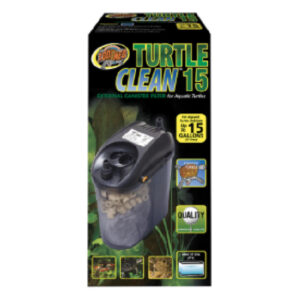 The Zoo Med 501 is a versatile turtle canister tank filter that can be used for fresh and saltwater turtles. It features a powerful motor that creates strong water currents, making it ideal for turtles that require high levels of filtration. The Med 501 also has an adjustable flow rate.
The Zoo Med 501 is a versatile turtle canister tank filter that can be used for fresh and saltwater turtles. It features a powerful motor that creates strong water currents, making it ideal for turtles that require high levels of filtration. The Med 501 also has an adjustable flow rate.It’s also very affordable, making it a great option for those on a budget.
- Intended For: Aquatic Turtles
- Includes: 1 TurtleClean 15 Canister Filter
- Material: Plastic
- Environment: Turtle Tanks Up To 15 Gal
Features
The ZOO MED 501 is a powerful filter designed for turtle tanks, vivariums, and aquariums. It has a robust motor which creates intense water currents, making it perfect for turtles that need high filtration levels. The ZOO MED 501 also has a feature that allows you to customize the level of filtration to suit your turtle’s needs.
It is compatible with Turtle Tank Activated Carbon Insert and Turtle Tank Mechanical Filter Sponge.
Exo Terra 12x12x18 Specifications
- Dimensions: 12 x 12 x 18 inches
- Weight: 15.76 Pounds
- Environment:Turtle Tanks Up To 15 Gal
Pros and Cons of Exo Terra 12x12x18
Buyer’s Guide
Do Turtle Tanks Need a Filter?
A filter is necessary for a turtle tank to stay clean and the water free of harmful toxins.

A good filter will also remove bacteria and excess food particles. There are a variety of filters, so it is important to choose one that is sized appropriately for the tank and that has the features you need.
How to Choose A Filter
Choosing the right filter is an important decision. There are a few factors you’ll need to consider before making your purchase.
- What size tank do you have?
- How many turtles do you have?
- What type of filter do you want? (Canister, hang-on-back, etc.)
- What is your budget?
Once you’ve answered these questions, you can begin shopping for the perfect filter. [1]
Size and GPH
The size of your turtle tank will determine the size of filter you need. A small tank (20 gallons or less) can be adequately filtered with a filter that has a flow rate (GPH) of up to 100. A medium-sized turtle tank (20-40 gallons) will need a filter with a GPH of 200. And a large turtle tank (40 gallons +) will need a filter with a GPH of 350.
Mechanical, Biological, and Chemical Filtration
Turtle tanks need filters that provide all types of filtration.
Mechanical filtration traps particles of uneaten food and waste in the filter media. This type is essential for keeping the water clean.
Biological filtration eliminates ammonia and nitrites which are produced by the turtles and their waste. They are toxic to turtles (and all other aquarium animals) and can quickly build up to lethal levels in an enclosed tank environment. Biological filtration uses beneficial bacteria to convert these toxins into harmless Nitrates.
Chemical filtration removes impurities and toxins. It is usually accomplished with activated carbon.
Ease of Maintenance
Turtle tanks need to be cleaned and the filter media replaced on a regular basis. Choose a filter that is easy to disassemble and clean. Some filters have replaceable cartridges while others require you to clean the entire unit.
Canister filters are typically the easiest to maintain. They can be taken apart and cleaned easily. Hang-on-back filters are also relatively easy to maintain. But they can be more difficult to clean than canister filters because they’re not as easy to take apart. Internal filters are the most difficult to clean because they’re not designed to be taken apart.
Stay Away from Undergravel Filters
Many turtle tank owners believe that undergravel filters are the best option, when in reality, they aren’t.
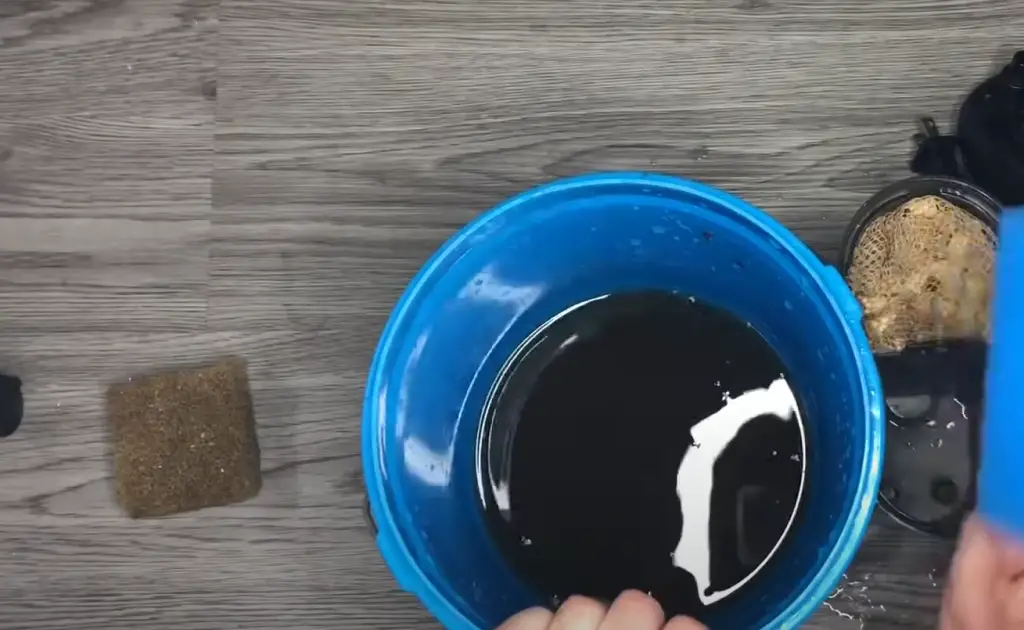
These types of filters can do more harm than good because they can trap debris and uneaten food under the gravel, which can lead to problems with water quality. Overall, it’s a wiser decision to go for a canister filter or hang-on-back option as they will do a much better job cleansing the water while also being less likely to provoke any issues. [2]
Types of Turtle Tank Filters
There are three primary types of filters used in turtle tanks: canister, power, and hang-on-back (HOB). Weigh the pros and cons of each before settling on a purchase.
They’re powerful and efficient, and they can be easily hidden from view. The only downside is that they’re more expensive than other types.Power filters are a good middle-of-the-road option. They’re not as powerful as canister filters, but they’re also less expensive. The biggest downside to power filters is that they can be loud and bulky.
Internal filters
Internal filters are a type of filter that’s placed inside the turtle tank. While less common, internal filters can be a great option for tanks with limited space.
They can be a hassle to clean and take care of. Be sure to follow all instructions and maintenance recommendations when choosing an internal filter.
Canister filters
They are one of the widely used types of filters for turtle tanks. They’re powerful and efficient, and they can be easily hidden from view. The only downside is that they’re expensive.
Canister filters require regular cleaning and maintenance in order to work properly.
Hang-on-back filters
These filters are the most affordable type of filter, but they’re also the least powerful. They’re a good choice for small tanks or tanks with low filtration needs.
Under-gravel filters
They are a type that’s placed under the gravel in the tank. Although less popular than other types, canister filters can be a good option for small tanks or tanks with limited space.
A downside to under-gravel filters is the cleaning and maintenance can be difficult.
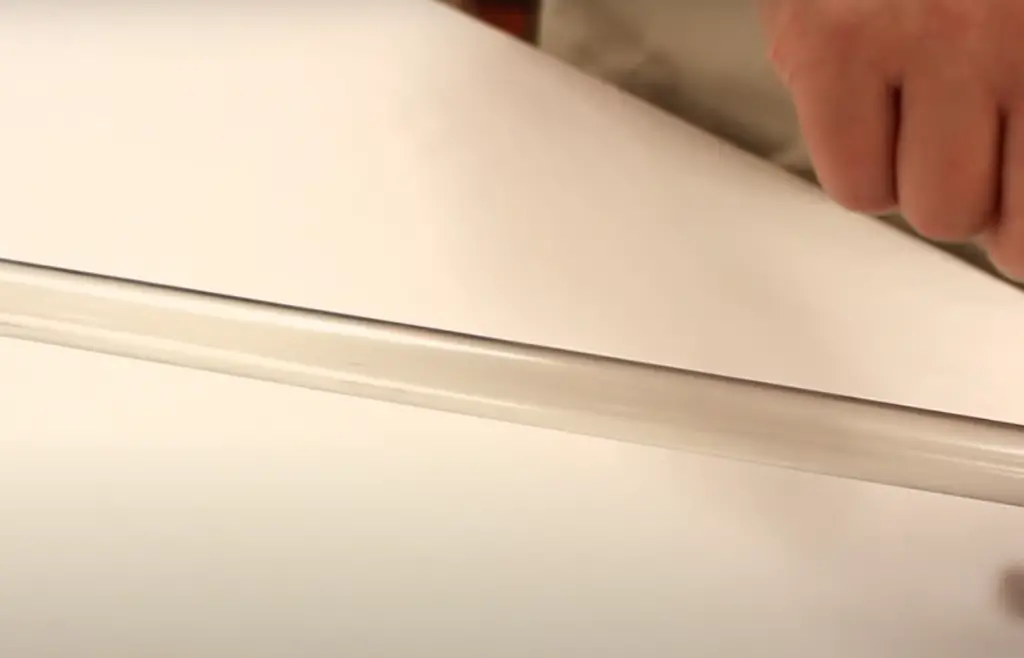
As you can see, there are a variety of different types that can be used. The best type of filter for your tank will depend on a number of factors, including the size of your tank, the filtration needs of your turtles, and your budget. [3]
If you’re not sure which type is right for your turtle tank, ask a staff member at your local pet store or contact a turtle expert for advice.
Deciding on Your Turtle Filter
You have a few different choices regarding filters for your tank.
Canister filters are the most powerful and efficient option, but they’re also the most expensive and can be difficult to set up and maintain. Hang-on-back filters are a good middle ground – they’re not so powerful, but they’re easier to use and not as expensive. Internal filters are the least powerful option, but they’re also the easiest to set up and maintain.
If you’re just starting with turtles, use an internal filter. As you get more experience, you can upgrade to a hang-on-back or canister filter if you want more filtration power.
To choose the right one for your turtle tank, you need to consider the tank’s size, the type of turtles you have, and your budget.
If you have a small tank, get an internal filter. They’re more affordable.
They’re more powerful, but they’re still relatively easy to use and maintain.If you have a large tank, get a canister one. They’re the most powerful type of filter, but they’re also the most expensive and difficult to use. However, if you have the budget for it and you’re willing to put in the effort to learn how to use it, a canister filter will do an amazing job of keeping the tank clean and healthy.
FAQ
Are canister filters good for turtle tanks?
Canister filters provide strong filtration while still being hidden away. Get a filter that is rated for your tank size, and clean the filter regularly according to the manufacturer’s instructions.
What type of filter is best for a turtle tank?
Сonsider the size of your tank, the type of turtles you have, and your budget.
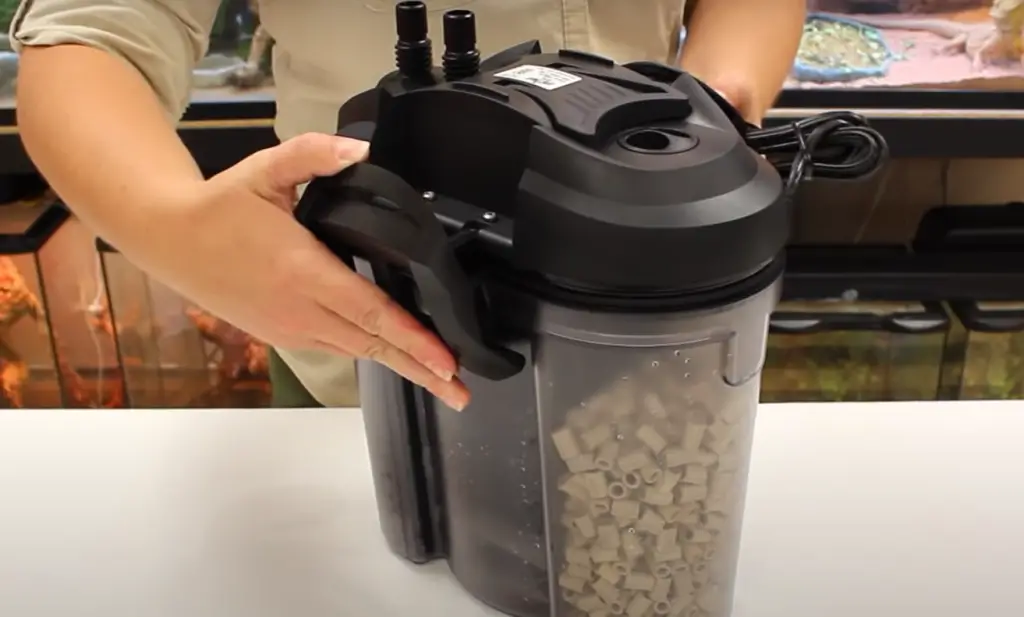
So, for example, if you have a small turtle tank (10 gallons or less), an internal filter would be a good option. If you have a larger turtle tank (50 gallons or more), a canister filter would be a better choice.
What size filter do I need for a 75 gallon turtle tank?
It depends on the type of turtles you have, and how many turtles are in the tank. If you have four or fewer tiny turtles, then a 50 to 75 gallon aquarium filter would be sufficient. If you have more than four turtles, or if your turtles are larger, then you will need a 100 to 150 gallon filter. [4]
How long do turtle tank filters last?
Turtle tank filters don’t last forever, but they should last for several years with proper maintenance. Сlean the filter regularly and replace it every few years to keep the tank clean and fresh. Most filters types require cleanings every 2 to 3 months. [5]
Related Video: Exo Terra 12x12x18 Setup Live Stream
Conclusion
Zoo Med 501 is a great product for those looking to get into the hobby of reptile keeping. It is simple to use. The only thing to keep in mind is that it is not a complete solution, and you will need to supplement it with other products as your reptile grows. Overall, we highly recommend the Zoo Med 501 for anyone starting out in the reptile keeping hobby!
References:
- https://www.petmd.com/how-pick-right-turtle-tank-filter-and-tank
- https://modestfish.com/best-filter-for-turtle-tank/
- https://myturtlecam.com/turtle-tank-filtration.php
- https://aquaticturtles.net/reviews/aquatic-turtle-filters.html
- https://be.chewy.com/pet-turtle-tank-and-water-maintenance/

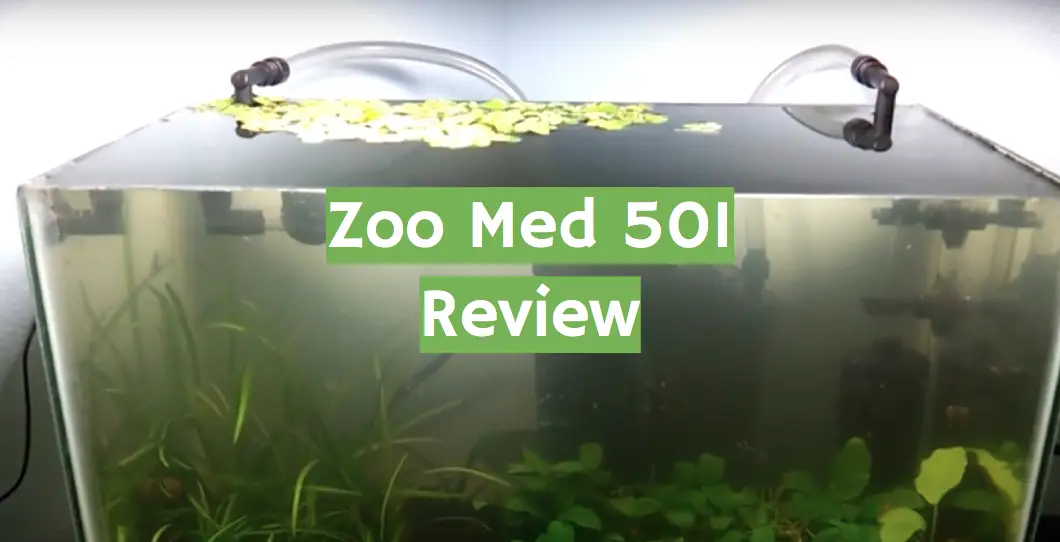
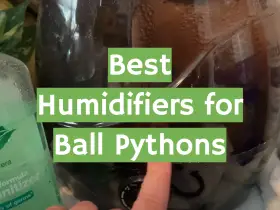
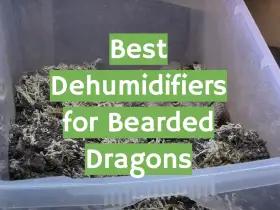
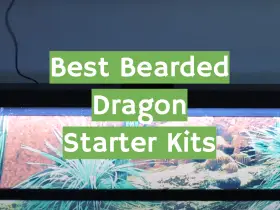

Leave a Review